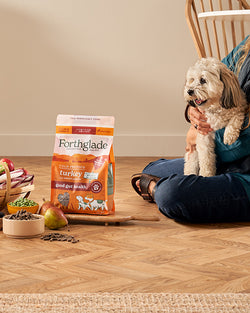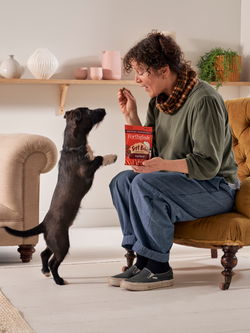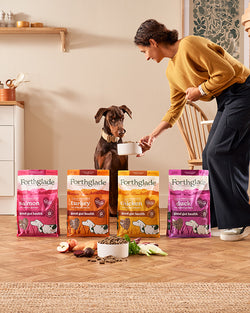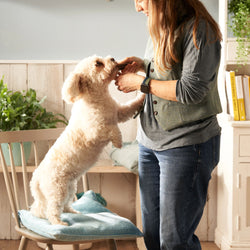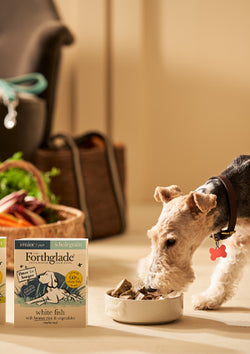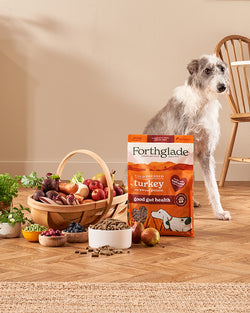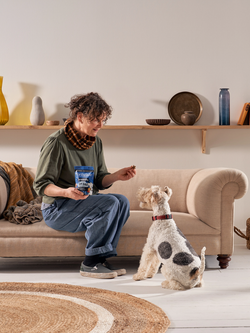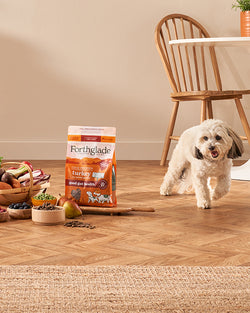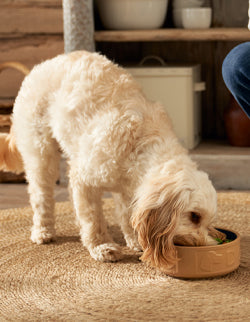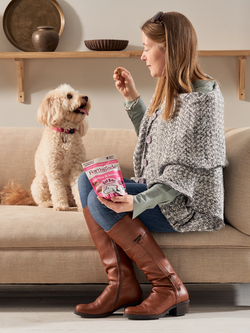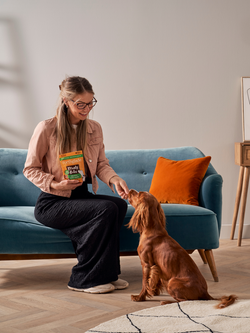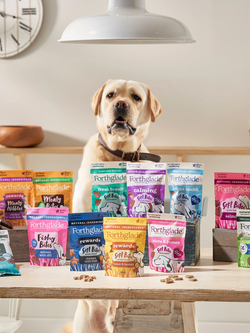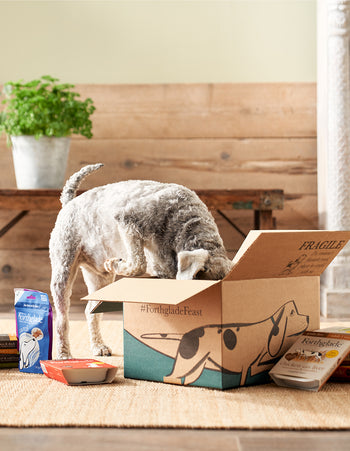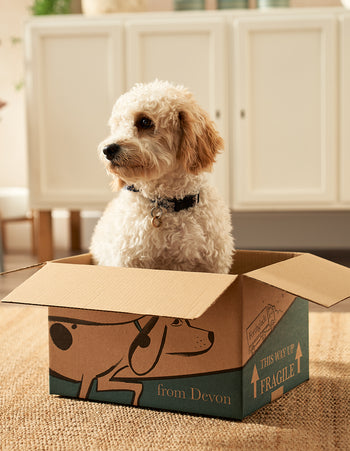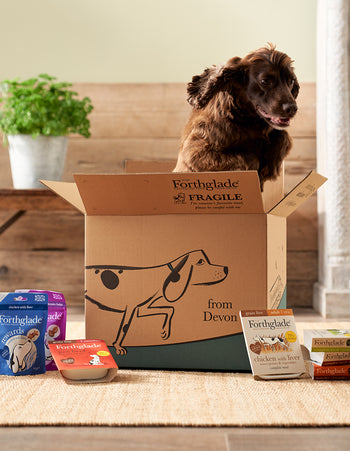How To Stop Your Puppy Crying At Night
Bringing a new puppy home is an exciting but it can also come with a few sleepless nights. If your puppy is crying at night, you’re not alone. It’s incredibly common in those early days, especially on the first night. However there are gentle, effective ways to help your pup feel safe, secure, and ready to settle.
Whether your little one is whining in their crate or struggling to sleep alone, we’ve put together a guide to help you both get a good night’s rest.

Understanding Why
Before we can soothe your puppy, it helps to understand why they’re crying in the first place. Crying or whining at night is often your puppy’s way of saying, “I’m not sure about this!” After all everything is new, from the smells and sounds to sleeping away from their mum and litter for the first time. Here are some common reasons:
- Loneliness: They miss the comfort of their previous environment.
- Fear or insecurity: A large, quiet room can feel overwhelming.
- Needing the toilet: Puppies have tiny bladders and may need a nighttime wee.
-
Hunger or discomfort: They may not have eaten enough or feel too hot or cold.
What Not to Do
It can be tough hearing your puppy cry, but it’s important to respond in the right way. Here’s what not to do:
- Don’t punish them: Crying is your puppy’s only way of communicating discomfort or confusion. Punishment will only make them more anxious.
- Don’t leave them to “cry it out”: Puppies don't learn to self-soothe this way, they just learn that their cries for help go unanswered.
- Don’t overstimulate before bed: Rough play or exciting toys can make it harder for your puppy to wind down.
Instead, focus on creating a calm, safe, and predictable bedtime routine.

Tips to Help Them Settle Before Bedtime
Now let’s look at practical, comforting ways to help your puppy feel more at ease at night.
1. Let them go to the toilet before bed
Always let your puppy out for a final wee just before bedtime. Puppies instinctively avoid soiling their sleeping space, so a full bladder can be a big reason for nighttime crying.
2. Make sure they get enough food during the day
A hungry pup is unlikely to sleep soundly. Ensuring they’re getting enough food and the right kind can make a huge difference. Read our guide on puppy diet and nutrition for advice on what they need.
Feeding them high-quality, balanced meals like our puppy dog food helps them feel full, nourished, and ready for rest.
3. Make sure they’re well exercised
Tired puppies sleep better. A good walk in the evening can do wonders, just 20 minutes of sniffing and exploring uses up as much energy as an hour of zooming about.
If they’re not yet fully vaccinated or it’s too late for a walk, try mentally stimulating games indoors. Treat puzzles and nose-based activities (like a mini scavenger hunt) can be great alternatives. Explore our range of puppy treats to use in enrichment games.
4. Give them a safe space
Creating a cosy, calm space of their own helps your puppy feel safe. Many new owners find that crates work brilliantly as long as they’re introduced gradually with lots of positive reinforcement. Make sure your puppy’s space is:
- Away from loud noises
- Free from other pets or children at bedtime
- Comfortably sized (not too big or too small)
If they continue to cry, try moving the crate into your bedroom for a few nights and then slowly transition it out as they gain confidence.
5. Try the T-shirt trick
Your scent is a powerful source of comfort. The “three T-shirt trick” is a gentle way to help them feel close to you even when you’re not there:
- Wear one T-shirt during the day or overnight.
- Place it in their crate so they can smell your scent.
- Have a second shirt ready, while the third is in the wash.
Rotate every few days for a familiar, calming effect.
6. Use calming sprays and treats
There are a number of natural aids that can help ease nighttime nerves. Calming sprays or plug-in diffusers using dog-safe essential oils (like lavender or chamomile) can create a peaceful environment.
Our calming dog treats are another gentle way to support your pup’s emotional wellbeing. Made with natural, wholesome ingredients and botanicals like chamomile and lemon balm, they’re ideal as part of a soothing bedtime routine.

Final Thoughts
Every puppy is different, and the first few nights can be a bit of a learning curve. With patience, routine, and the right support, your puppy will soon feel secure enough to sleep soundly through the night.
Looking for more support in your puppy journey? Take a look at our other helpful blogs:
When it comes to keeping tummies happy and tails wagging, our puppy dog food, puppy treats, and calming dog treats are made to support your puppy’s wellbeing every step of the way.








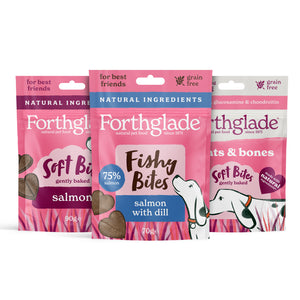



 FAST & FREE DELIVERY ON ORDERS £40+*
FAST & FREE DELIVERY ON ORDERS £40+*
 SUBSCRIBE TO SAVE 10% OFF EVERY ORDER
SUBSCRIBE TO SAVE 10% OFF EVERY ORDER
 OVER 13,600 5 STAR REVIEWS
OVER 13,600 5 STAR REVIEWS



